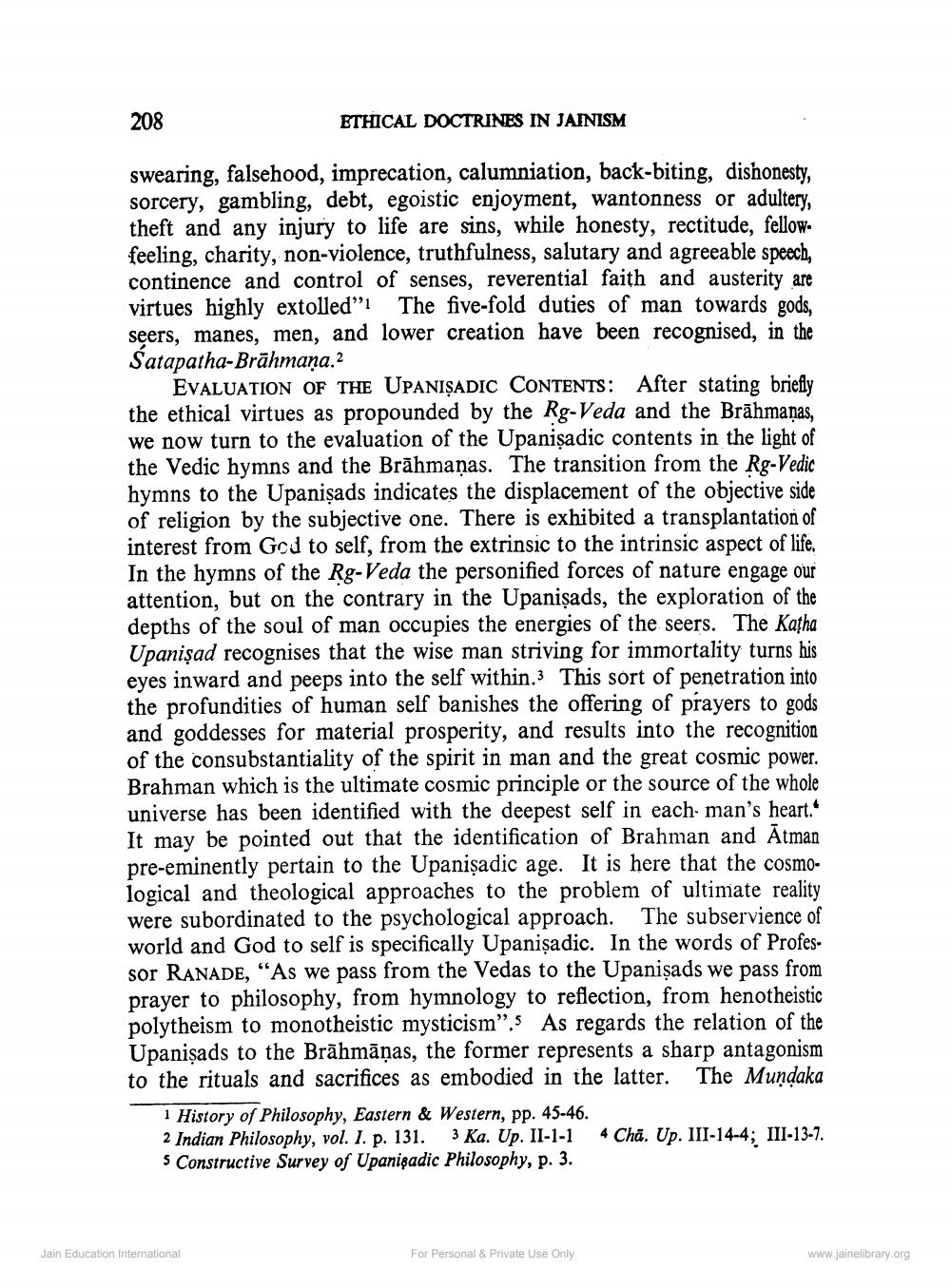________________
208
ETHICAL DOCTRINES IN JAINISM
swearing, falsehood, imprecation, calumniation, back-biting, dishonesty, sorcery, gambling, debt, egoistic enjoyment, wantonness or adultery, theft and any injury to life are sins, while honesty, rectitude, fellowfeeling, charity, non-violence, truthfulness, salutary and agreeable speech, continence and control of senses, reverential faith and austerity are virtues highly extolled” The five-fold duties of man towards gods. seers, manes, men, and lower creation have been recognised, in the Satapatha-Brāhmaṇa.2
EVALUATION OF THE UPANIŞADIC CONTENTS: After stating briefly the ethical virtues as propounded by the Rg-Veda and the Brāhmanas, we now turn to the evaluation of the Upanisadic contents in the light of the Vedic hymns and the Brāhmaṇas. The transition from the Rg-Vedic hymns to the Upanişads indicates the displacement of the objective side of religion by the subjective one. There is exhibited a transplantation of interest from God to self, from the extrinsic to the intrinsic aspect of life. In the hymns of the Rg-Veda the personified forces of nature engage our attention, but on the contrary in the Upanişads, the exploration of the depths of the soul of man occupies the energies of the seers. The Katha Upanişad recognises that the wise man striving for immortality turns his eyes inward and peeps into the self within.3 This sort of penetration into the profundities of human self banishes the offering of prayers to gods and goddesses for material prosperity, and results into the recognition of the consubstantiality of the spirit in man and the great cosmic power. Brahman which is the ultimate cosmic principle or the source of the whole universe has been identified with the deepest self in each man's heart." It may be pointed out that the identification of Brahman and Ātman pre-eminently pertain to the Upanişadic age. It is here that the cosmological and theological approaches to the problem of ultimate reality were subordinated to the psychological approach. The subservience of world and God to self is specifically Upanişadic. In the words of Professor RANADE, “As we pass from the Vedas to the Upanişads we pass from prayer to philosophy, from hymnology to reflection, from henotheistic polytheism to monotheistic mysticism”.5 As regards the relation of the Upanişads to the Brāhmāṇas, the former represents a sharp antagonism to the rituals and sacrifices as embodied in the latter. The Mundaka
1 History of Philosophy, Eastern & Western, pp. 45-46. 2 Indian Philosophy, vol. I. p. 131. 3 Ka. Up. II-1-1 4 Cha. Up. III-14-4; III-13-7. 5 Constructive Survey of Upanigadic Philosophy, p. 3.
Jain Education International
For Personal & Private Use Only
www.jainelibrary.org




